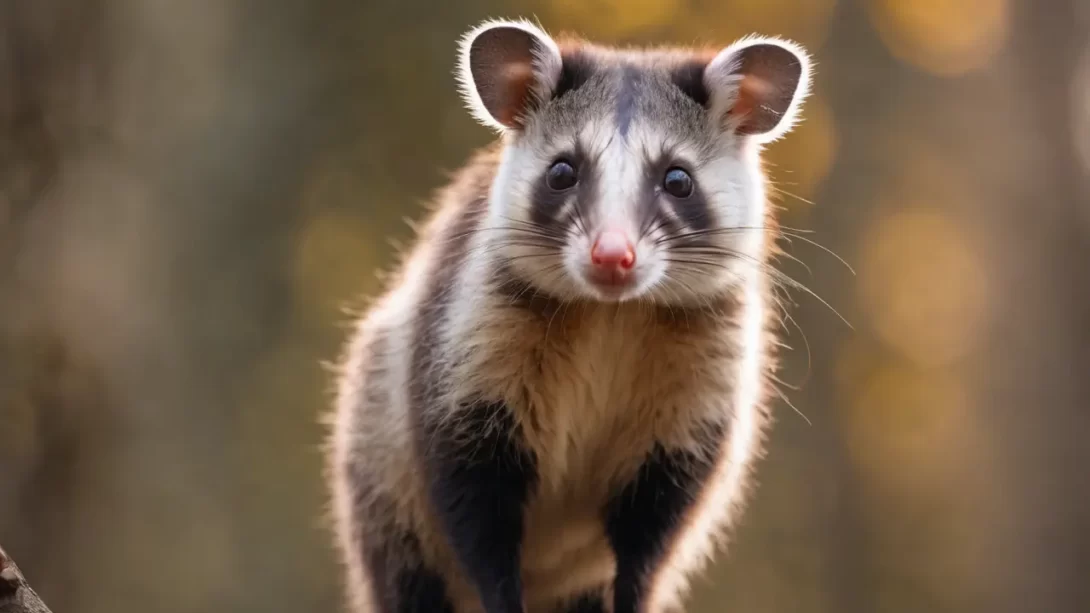Possums, often found ambling through gardens, are a common sight in many areas. These nocturnal marsupials can be both fascinating and, at times, frustrating for gardeners. While they play a role in the ecosystem, possums can become pests, raiding gardens and disturbing plants. It’s crucial, however, to address possum issues humanely and in accordance with local laws. This article provides guidance on managing possums in your garden, focusing on effective and ethical approaches.
Possum Behavior
To effectively manage possums, understanding their behavior is key. Possums are opportunistic feeders, often attracted to gardens as sources of easy food. They primarily eat fruits, nuts, and insects, which can lead gardeners into conflict with these creatures. However, they also play a beneficial role by consuming unwanted pests and dead animals. Recognizing their dietary habits can help in devising strategies to deter them from your garden. Additionally, understanding that possums have natural predators and play a vital role in the environment is essential in determining how to manage them in your garden.
Legal and Ethical Considerations
Before taking any action against possums, it’s important to be aware of the legal and ethical implications. Many regions have specific laws protecting wildlife, including possums, which can restrict or entirely prohibit their harm or relocation. It’s critical to research and adhere to your local wildlife laws. Ethical treatment of possums and other wildlife should be a priority; this includes exploring all non-lethal management options before considering more drastic measures. Remember, the goal is to coexist with these animals, not to harm them.
Non-Lethal Control Methods
Non-lethal methods are often the best first line of defense against possums in your garden. Here are some effective strategies:
- Fencing and Barriers: Creating physical barriers can effectively keep possums at bay. A fence that is at least 4 feet high, with a top section that bends outward, can discourage climbing. Burying the bottom of the fence can prevent digging underneath.
- Garden Modifications: Altering your garden layout and plant choices can naturally deter possums. Avoid planting trees and shrubs that possums are particularly attracted to. Keeping the garden tidy and free from fallen fruits and nuts will make it less appealing to them.
- Use of Repellents: Various repellents, both commercial and homemade, can discourage possums. Natural repellents like garlic, chili pepper, or ammonia-soaked rags can be effective. However, their effectiveness may vary, and regular reapplication is necessary.
- Securing Food Sources: Ensure that compost bins and garbage cans are well-secured. Possums are attracted to food scraps, so maintaining a clean and closed compost system is essential.
Humane Trapping and Relocation
In some cases, you might need to resort to trapping. However, this should be done humanely and legally:
- Guidelines for Humane Trapping: Use live traps that do not harm the possum. Bait the trap with fruits or vegetables and check it regularly to ensure that any trapped animal is not left in distress.
- Local Wildlife Rescue and Relocation Services: Before attempting to relocate a possum, contact local wildlife authorities or rescue services. They can provide guidance or assistance in safe and legal relocation.
- Legal Considerations: Be aware of the legalities surrounding trapping and relocating wildlife in your area. In some regions, permits are required, and relocating animals without proper authorization can lead to penalties.
When Lethal Control is Necessary
In rare circumstances, lethal control of possums may be considered. This is typically a last resort and should be approached with caution and within legal boundaries:
- Circumstances for Lethal Control: Lethal methods should only be used when possums pose a significant threat to native wildlife, domestic animals, or when they carry diseases. It’s crucial to exhaust all non-lethal options first and to consult with wildlife professionals.
- Legal and Safe Methods for Euthanizing Possums: If lethal control is necessary, it must be done in a way that minimizes suffering. The methods vary depending on local laws and regulations. Always seek advice from wildlife authorities or licensed professionals.
- Professional Wildlife Control Services: Handling lethal control methods requires expertise and understanding of local wildlife laws. It’s advisable to contact professional wildlife control services that are equipped to deal with these situations humanely and legally.
Conclusion
Possums, while sometimes seen as pests, are an important part of our ecosystems. Managing them in your garden should be done thoughtfully and humanely. Prioritize non-lethal methods, such as physical barriers and garden modifications, to deter possums. If intervention is necessary, ensure it aligns with local wildlife laws and ethical practices. Remember, the goal is to maintain a balance between enjoying your garden and coexisting with the wildlife around you. By following these guidelines, you can manage possum interactions in your garden effectively and ethically.



